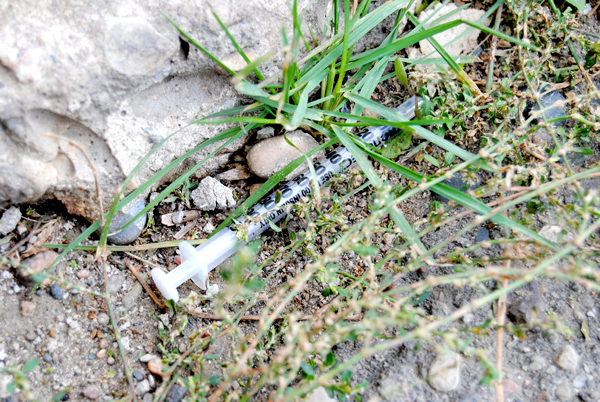Parkland Ambulance has seen a slight increase in overdose calls within the last week.
The organization’s weekly report showed 18 incidents related to overdoses in the past seven days. However, said Director of Public Affairs Lyle Karasiuk, ‘overdoses’ is a large category. Those calls can range from street drugs to alcohol, accidental or intentional, and could even include poisoning in babies.
“That’s not an unusually high number of overdoses for us. I wouldn’t say that we’re seeing any trends, such as the case in Regina,” he said.
“Certainly we’re not seeing a dramatic spike of anything.”
On Thursday, the Regina Police Service warned the public about illegal drugs. Within one day, Canada Day, police in the city responded to six fatal overdoses.
Karasiuk said he has seen Prince Albert have similar overdose spikes in the past, and paramedics can usually detect when something’s not right on the streets.
“When we start to see things like that, you’ll see two, three, four overdoses in one shift for our paramedics,” he explained.
Karasiuk said normally it’s a sign that someone has mixed a variety of drugs, is selling it for cheap, and several people have their hands on the illegal substance.
In response to the city’s slight, but steady, increase in overdoses, Karasiuk reminded the public about what to do if you witness one.
“If you are going to approach someone, just be sure that it’s safe for you to do so,” he said.
“If they are breathing, the easiest way, if you cannot wake them up, is roll them on their side and call 911. If they’re not breathing, then you need to start breathing for them.”
Having them lay on their side means they’re unlikely to choke if they vomit.
Because of COVID-19, he recommended that you use a barrier device for rescue breathing unless it’s a close family or friend and you’re aware that neither of you are infected with the virus. If it’s a stranger or someone who’s less known to you, he said to skip rescue breathing and start doing CPR until an ambulance arrives.
Karasiuk said if you have a family or friend that is known to misuse narcotics, get a naloxone kit. Naloxone will bind to opioid receptors in the brain, preventing the drug from activating them.
In Prince Albert, you can go to Access Place or a pharmacy to get a kit and training on how to use it for free.
Karasiuk said people are often hesitant or embarrassed to get a naloxone kit, but it could save someone’s life. Some businesses in the city, those that serve alcohol in particular, have kits available just in case.
“We want to get people past that stigma,” emphasized Karasiuk. “Make that step. It’s important to have those tools on hand.”
He said that for every minute a person isn’t breathing and has no pulse, the chance of a successful outcome decreases by 10 per cent. That means a person is unlikely to recover if they’re without a pulse for 10 minutes.
Although it’s unclear whether or not the overdoses in Regina were opioid-related, the police service said the signs of an opioid overdose include blue lips or nails, small pupils, dizziness and confusion, choking, gurgling or snoring sounds, difficulties walking, talking or staying awake and the inability to wake up.
Karasiuk said Parkland Ambulance has also seen an increase in psychiatric calls. He suspects this could be associated with pandemic-related factors, such as financial troubles or returning to work after several months off.


